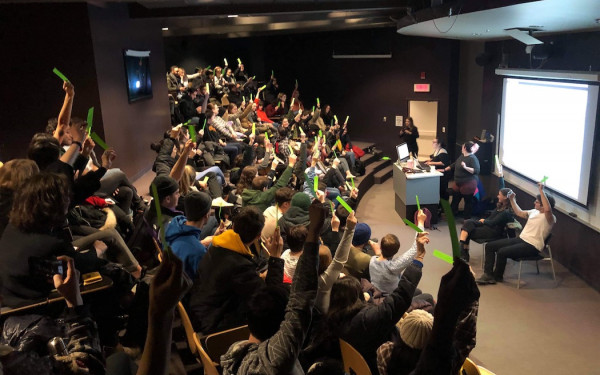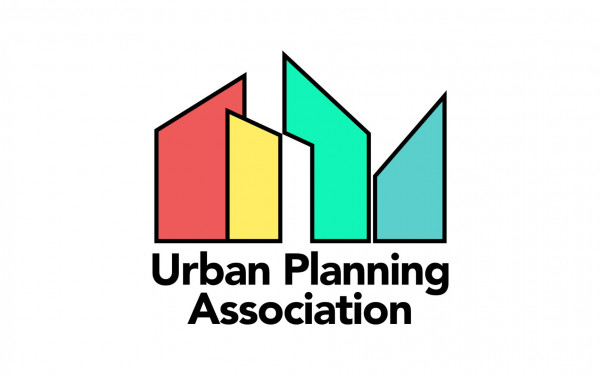ConU 101: Know your rights
What you need to know about your responsibilities, rights and services
Navigating your student rights at Concordia University can be a little overwhelming. Thankfully, here’s a simple breakdown of some of the services and legal documents students should be familiar with when starting their school year.
Academic rights
Under Concordia’s Code of Rights and Responsibilities, students have “the freedom of expression when it comes to freedom of thought, belief, opinion and expression. Students also have freedom of peaceful assembly and freedom of association as well as the freedom of conscience and religion.”
If a student feels that these rights are being infringed by a member of the university they are within their right to file a formal complaint with the school.
A complaint can be made for a number of reasons. These include: “threatening or violent conduct made by another member; sexual violence and sexual assault; harassment; sexual harassment; psychological harassment; discrimination; and so on.”
A formal complaint has to be filed with the school Advisor - a member of the University who operates and represents Concordia’s Office of Rights and Responsibilities. The complaint has to be sent to the office within three months of the alleged violation. The only exception being if the complaint is related to psychological harassment, then the complaint can be filed with the Advisor within 90 calendar days from the last incident.
When it comes to cases regarding sexual violence, students and survivors of sexual violence can make a formal complaint as indicated by the school’s policy on Sexual Violence.
Students who want to file an internal complaint can consult the Sexual Assault Resource Centre (SARC), who can also accompany them through internal or external options (requesting a formal apology, mediation, etc). Additionally, they assist students in accessing administrative bodies that offer compensation to victims of sexual violence such as the Indemnisation des victimes d’actes criminels.
When it comes to students with disabilities, university policy asserts that Concordia must make reasonable efforts to accommodate them and remove barriers that might block them from having proper access to school services.
This means that students with disabilities can get proper accommodations for their academic needs. This is done through the Access Centre for Students with Disabilities (ACSD), who provide support services and can help organize classroom accommodations for students.
When a disagreement between a student and instructor regarding their accommodation needs not being met transpires, the student can contact their ACSD Advisor and can bring their concern directly to the chair of the department affiliated to the class.
If a Student believes that their ACSD Advisor is not adequately helping them develop an accommodation plan that meets their limitations and needs, they should contact the manager of the ACSD to discuss a workaround.
School Services
Concordia offers services on both campuses for health, legal and academic needs.
The school’s Health Services Clinic provides STI testing, gynecological testing, Pap tests and blood tests. They provide vaccinations, as well as contraception prescription renewals. They can also help with management of chronic conditions, such as diabetes, Crohn’s, asthma and arthritis. They can provide mental health assessments and psychiatry as well as referrals to specialists for diagnostic testing if needed.
It is important that students book an appointment ahead of time as the clinic is usually very busy. Students can call these numbers for an appointment:
Sir George Williams campus 514-848-2424 ext. 3565.
Loyola campus 514-848-2424 ext. 3575.
Student Advocacy Office
This office provides students with free confidential advocacy services in the event a student is facing academic charges or behavioural complaints. The office can also be used for making academic requests related to changing notations for a class like a medical leave, exam deferral, or dropping a class even after missing the discontinued (DISC) deadline.
Student Success Centre
The Student Success Centre (SSC) gives students workshops and other services to help with academic achievement. They provide workshops like time management and study strategies for first year students. They also offer learning services and career planning advice.
This centre provides assistance for Indigenous students. Services include study strategies for academic success, tutoring, workshops, job opportunities through postings and an Indigenous Student Recruitment Fair.
The Ombuds office assists students regarding concerns revolving around the university’s policies. It aims to resolve concerns informally without needing a student to go through a formal complaint procedure.
The office is independent from the administrative structures of the university in order to remain impartial and accessible to all members.
Sexual Assault Resource Centre
The center offers support and services to Concordia students, staff and faculty who have been affected by sexual violence and harassment.
Concordia Student Union Services
Beyond services offered by the university, the Concordia Student Union (CSU) also offers numerous services that can benefit students. A major benefit to the CSU’s services is that they are run independently from the administration.
The clinic provides legal information, referrals, legal research and helps students with issues regarding immigration, racial injustice and discrimination, family law, and more.
The CSU’s Off-Campus Housing and Job Resource Centre is a useful resource for housing issues, rental and lease issues. They provide legal information to students and members of the Concordia community.
The CSU Student Advocacy Centre promotes the rights of undergraduate students. They help students who are dealing with issues “relating to professors and other students, issues relating to academic misconduct and violations of the Academic Code of Conduct, and issues relating to the Code of Rights and Responsibilities.”
Graduate Students’s Association (GSA)
The Graduate Students’ Association (GSA) is a student-run group that represents the graduate student body of Concordia. Like the CSU, they also have access to a Legal Information Clinic and health insurance.
CSU Health Insurance
Through the CSU, students have access to Concordia’s Health and Dental Plan insurance simply by paying tuition.
The plan covers over $10,000 for healthcare including prescription drugs, vaccinations, physiotherapists, psychologists, etc. It covers $250 in vision care and the program covers up to $500 for dental care. Lastly, it includes coverage for travelling abroad in case of trip cancellations and medical emergencies.
The CSU also provides mental health and wellness support through Empower Me and Maple, their telemedicine services. Students can contact practitioners from diverse areas of expertise, including psychology, psychotherapy, social work, and nutrition.
Student-Run Services
There are several student-run services and clubs at Concordia that can aid students.
Namely, The Centre for Gender Advocacy offers services aimed at students marginalized by sex, gender, and sexual orientation. These include peer-to-peer support, volunteer-initiated activities, resources focused on 2SLGBTQ+ organizations, distribution of safer sex, safer drug, and harm reduction materials. The centre also offers gender-affirming gear and even name changes at Concordia.
Students can verify which association to contact for support that fall under the umbrella organizations of the Arts and Science Federation of Associations (ASFA). This includes: Commerce and Administration Students Association (CASA), Engineering and Computer Science Student Association (ECA), Engineering and Computer Science Graduate Association (ECSGA), Fine Arts Student Alliance (FASA).
There are a number of other important student groups such as Le Frigo Vert and the People’s Potato, which provide students with affordable, ethical and healthier food alternatives.
This article originally appeared in Volume 44, Issue 1, published September 5, 2023.







